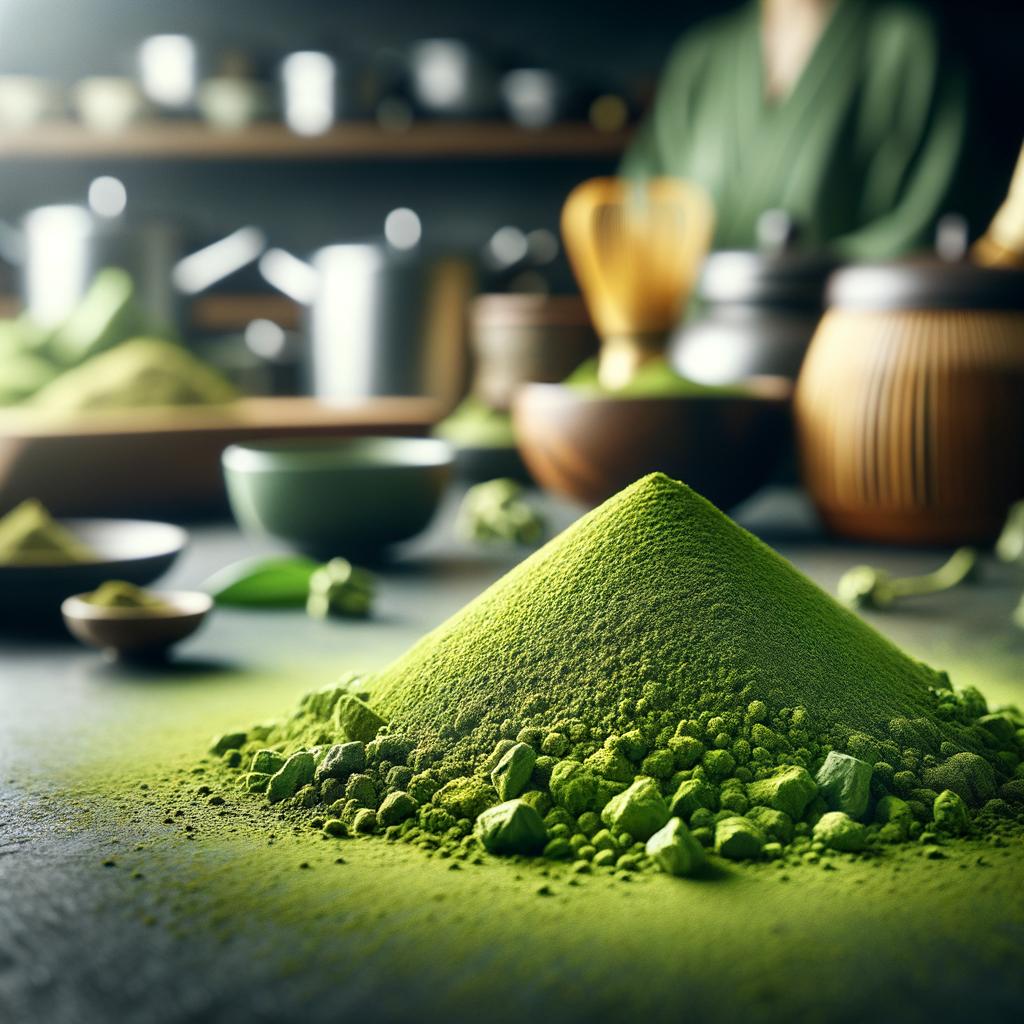Matcha Green Tea Powder

Description
Matcha green tea powder, a treasured ingredient from Japan, is a vibrant, jade-hued powder that has a soft, velvety texture to the touch. The aroma is sweet, grassy, and slightly floral, a scent that transports you instantly to serene Japanese tea gardens. Its flavor profile is unique, a blend of umami, sweet, and slightly bitter notes that leave an alluring aftertaste. It is distinctively different from regular green tea, as Matcha involves grinding the entire tea leaf into a fine powder, thus retaining all its nutritional value and providing a more intense flavor.
Primary Uses
In the culinary world, matcha is not just a tea but an incredibly versatile ingredient. Traditionally, it is whisked with hot water to make a frothy, rich tea, a central part of the Japanese tea ceremony. However, its uses have expanded globally to include a wide range of dishes. It's a key component in many Japanese sweets like mochi and wagashi, and also in western-style desserts like matcha-infused ice creams, macarons, and cheesecakes. Even savory dishes like noodles, soups, and matcha-dusted popcorn are gaining popularity. Besides culinary uses, matcha has been used in skincare for its antioxidant properties and in meditation practices to promote focus and calmness.
History
Matcha's history is as rich as its flavor. It dates back to the Tang Dynasty in China, where tea leaves were steamed and formed into tea bricks for storage and trade. However, it was in Japan during the 12th century that the practice of grinding tea leaves into a fine powder and whisking with hot water, the method we know as matcha preparation, began. Zen Buddhists appreciated matcha for its meditative qualities and used it to stay alert during long periods of meditation. The samurai, too, drank matcha before going into battle for its energy-boosting properties. Over time, the use of matcha has evolved from a spiritual ritual into a popular ingredient in global cuisine.
Nutritional Information
Nutritionally, matcha is a powerhouse. It is rich in antioxidants, specifically catechins, which are known for their cancer-fighting properties. It also contains L-theanine, an amino acid that can enhance brain function and promote relaxation. Matcha provides a slow-release caffeine that avoids the 'crash' associated with coffee and is also rich in vitamins A and C, fiber, and chlorophyll. Compared to regular green tea, matcha has a higher concentration of these nutrients, making it an excellent addition to a healthy diet. However, as with anything, it should be consumed in moderation, as excessive intake can lead to caffeine-related side effects.
In the world of tea, matcha is a gem that has transcended from a simple beverage to a versatile ingredient, from a spiritual elixir to a global sensation, all the while retaining its deep roots in history and culture.

